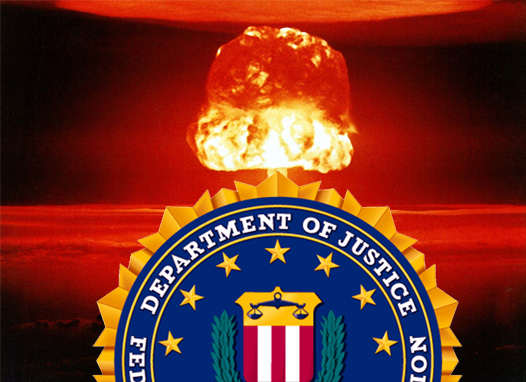
Some years ago I wrote an article for Harper’s entitled “The Radioactive Boy Scout” (which became a book of the same name) about a Detroit-area teenager who conducted remarkable experiments with radioactive materials as part of his effort to win an atomic energy merit badge from the Boy Scouts. David Hahn fantasized about building a breeder reactor to solve the nation’s energy crisis.
He never generated nuclear energy, but he did gather radioactive elements such as radium, americium, and thorium that he obtained from common consumer products such as smoke detectors and gas lanterns, and from items bought at secondhand stores, such as antique wall clocks. (In the early part of the 20th century, the clock dials were painted with radium so they would glow in the dark. That practice was halted after the people who did the painting started coming down with cancer.) In the end, the federal Environmental Protection Agency shut down Hahn’s backyard laboratory – a potting shed – and shipped the remains to Utah for burial at a low-level radioactive dumpsite.
Hahn, now 31, is back in the news. According to a story in a Michigan newspaper, Hahn is accused of “stealing smoke detectors from a common hallway where [he] was renting an apartment” and “was being held on a $5,000 bond in the Macomb County Jail after he was arraigned in 41B District Court on charges of larceny from a building.”
I don’t know the full circumstances surrounding Hahn’s arrest but I’m confident from what I know of him that he wasn’t out to harm anyone. Yet his arrest has triggered a law enforcement and media frenzy. The story linked above said police believe Hahn was gathering smoke detectors—get this— “in an effort to develop a homemade nuclear reactor.” It cited a police detective as saying, “Both our department and the FBI have been trying to monitor his movements once we learned he was back in the area.”
Hahn’s father, Ken, tells me that local police units, SWAT teams, canine squads, and the FBI searched his son’s apartment. They tore up the walls, ripped open furniture, and otherwise ransacked the place only to come up with nothing but a handful of smoke detectors, and found no dangerous levels of radiation. There were even suggestions made by some law enforcement authorities that Hahn might have links to Islamic terrorist groups. Meanwhile, some local TV news programs devoted more time to the story—and this is hard to imagine, I know—than to the collapse of the bridge in Minnesota.
All of this is oddly reminiscent of the Keystone Cops-shenanigans that surrounded Hahn’s teenage escapades. Back then, the local police stopped him and found, in the trunk of Hahn’s car, a sealed toolbox and assorted materials from his experiments.
The cops, believing that they might have an atomic bomb on their hands, towed the vehicle to their own headquarters. After realizing that this might not have been such a bright idea, they sealed off the area before bringing in a bomb squad, which determined that the materials were radioactive but that there was no bomb.
I thought the FBI had hit rock bottom in June 2006, when it arrested seven bozos in Miami and announced that it had disrupted “what may have been the early stages of a domestic terrorist plot to attack the Sears Tower.” It emerged, of course, that the agency had found no explosive materials or weapons, and that the accused had no ties to anyone actually from a terrorist group. But now it appears the FBI has reached a new low in the “case” of David Hahn.





